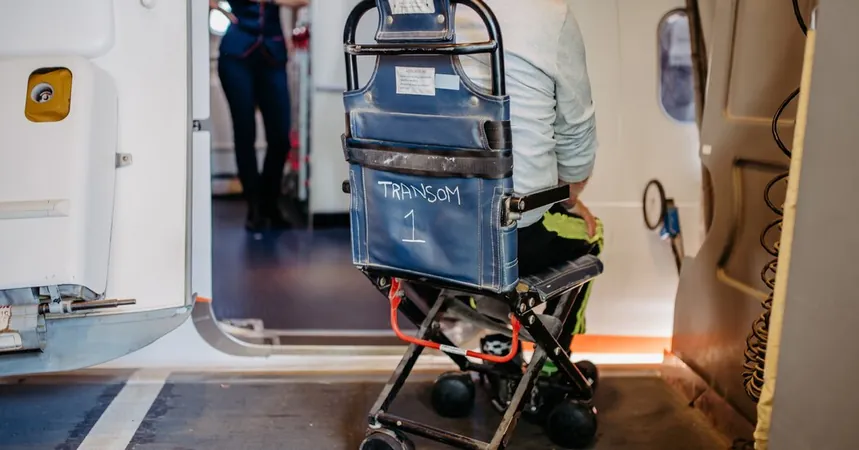
Groundbreaking New Protections for Air Travelers Using Wheelchairs!
2024-12-17
Author: Ying
Introduction
In a significant move set to enhance the travel experience for passengers utilizing wheelchairs, airlines will implement new regulations designed to safeguard their rights and ensure a smoother journey.
Key Regulations
Effective March 17, these measures require airlines to provide written notifications to passengers whose mobility devices have been mishandled. This information will detail their rights, which include contacting a complaint resolution official, filing claims with the airline, and the option to receive a loaner wheelchair either from the airline or from a preferred vendor, offering much-needed support in such frustrating situations.
Furthermore, airlines must also provide similar information at the time of check-in, ensuring that passengers are well-informed from the start. One significant advancement is the requirement for airlines to issue timely updates regarding the status of delayed mobility devices, keeping travelers in the loop during their transit.
Passenger-Friendly Initiatives
In an even more passenger-friendly initiative, if wheelchair users find themselves forced to book a more expensive flight due to insufficient space for their mobility devices on a cheaper option, airlines are mandated to reimburse the cost difference, ensuring they aren’t penalized for accessibility issues. This reimbursement policy applies only to flights on the same day, with the same origin and destination, and operated by the same airline.
Mobility Device Transportation
By June 16, airlines will be obligated to transport delayed mobility devices directly to the passenger’s final destination—be it an airport, hotel, or home—within specified timeframes: 24 hours for domestic flights and 12 hours for international flights lasting less than 12 hours. For international flights over 12 hours, the delivery window extends to 30 hours post-arrival.
If repairs or replacements are needed for the mobility devices, passengers will have the option to coordinate this with their preferred vendor while the airline covers the costs, ensuring that travelers can regain their independence swiftly.
Conclusion
These new regulations mark a promising shift in air travel for individuals with mobility challenges, reflecting a commitment to inclusivity and better service in the aviation industry. As airlines gear up to implement these changes, travelers can look forward to a more seamless and supportive flying experience.
Stay tuned for more updates on how these pivotal changes unfold and how they might impact your next travel plans!


 Brasil (PT)
Brasil (PT)
 Canada (EN)
Canada (EN)
 Chile (ES)
Chile (ES)
 España (ES)
España (ES)
 France (FR)
France (FR)
 Hong Kong (EN)
Hong Kong (EN)
 Italia (IT)
Italia (IT)
 日本 (JA)
日本 (JA)
 Magyarország (HU)
Magyarország (HU)
 Norge (NO)
Norge (NO)
 Polska (PL)
Polska (PL)
 Schweiz (DE)
Schweiz (DE)
 Singapore (EN)
Singapore (EN)
 Sverige (SV)
Sverige (SV)
 Suomi (FI)
Suomi (FI)
 Türkiye (TR)
Türkiye (TR)